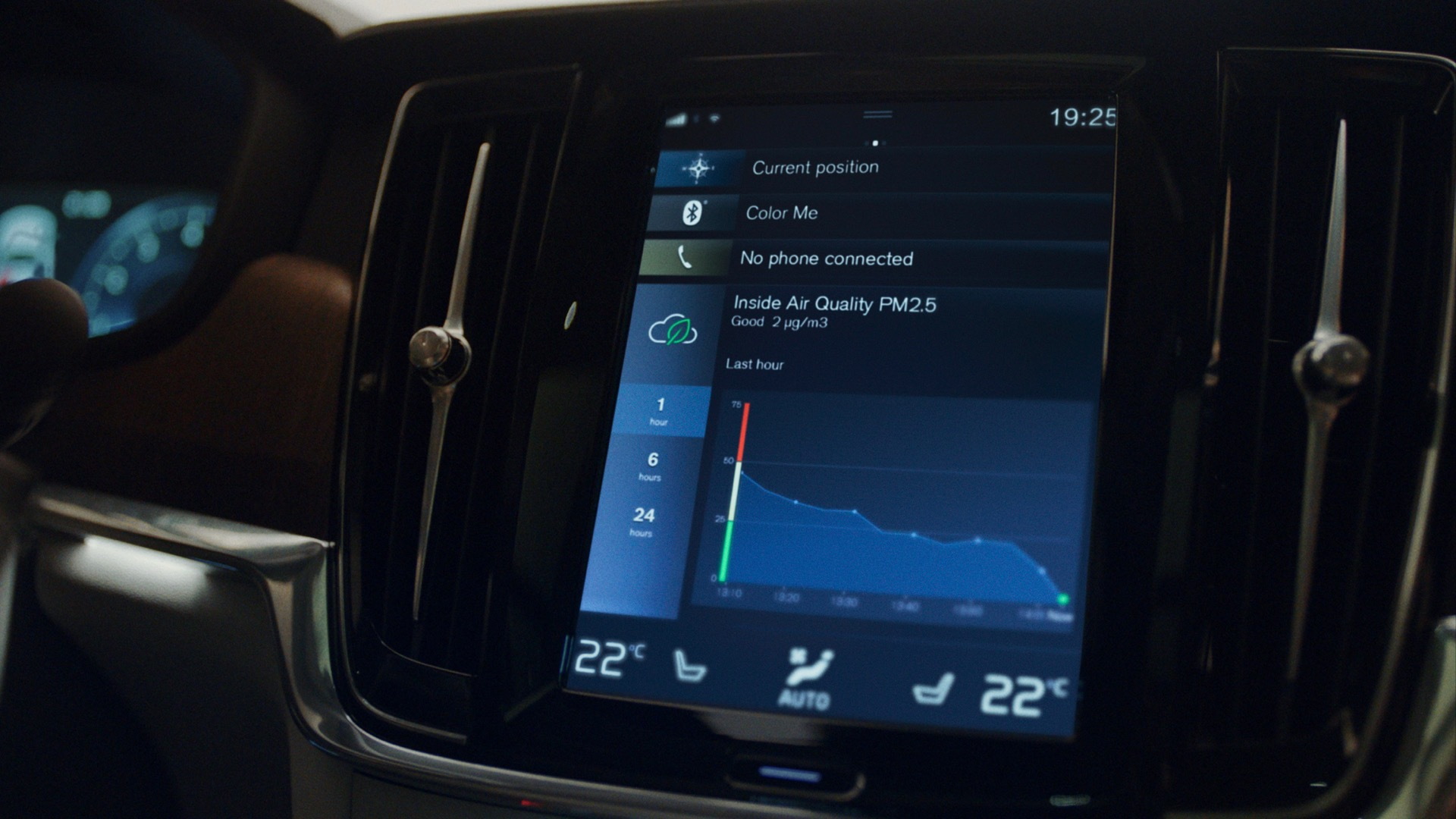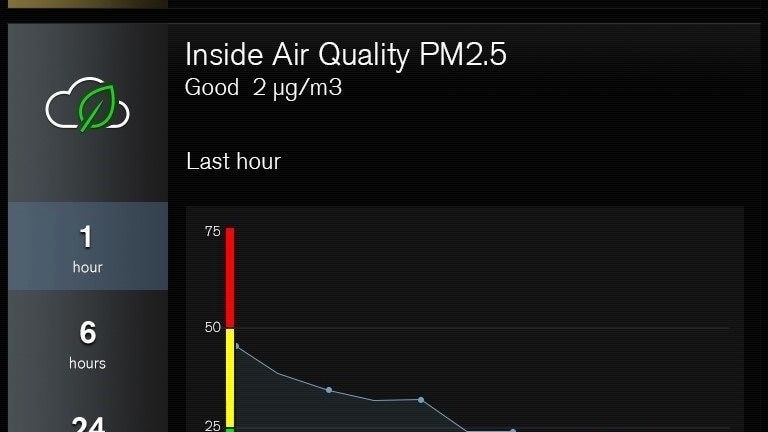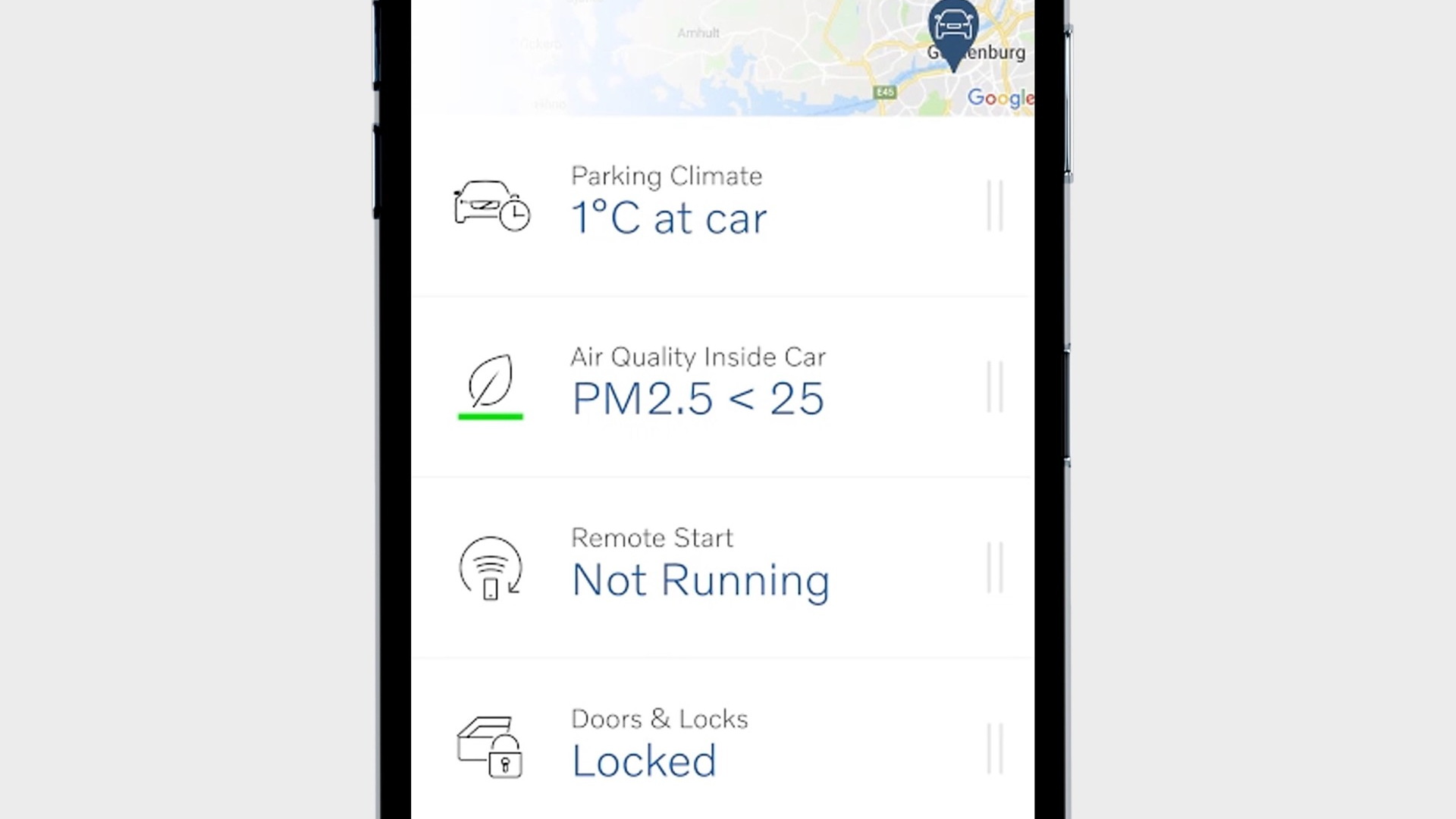Shelter-in-place orders during the early stages of the coronavirus pandemic briefly created the best air quality in decades, but forest fires on the West Coast of the United States have taken things in a drastically different direction. That makes Volvo's announcement of in-car air-quality monitoring this past week depressingly timely.
Volvo's Advanced Air Cleaner system includes a sensor that can measure levels of PM2.5—particulate matter linked to various respiratory ailments—inside a vehicle's cabin. It's a world first for production cars, Volvo claims.
In China, where PM2.5 measurements are regularly taken due to rampant air pollution, drivers can also compare air quality inside the car to the outside environment, Volvo said. Drivers in certain markets can also use the Volvo On Call smartphone app to monitor PM2.5 levels and schedule cleanings of the cabin air filter.
As the name suggests, Advanced Air Cleaner also cleans out particulate matter using a synthetic fiber-based filter and ionization. It can remove up to 95% of all PM2.5 particles from a vehicle cabin, according to Volvo.

2020 Volvo S60
The feature has been available on all "90 Series" and "60 Series" Volvo models since this spring. These are the vehicles based on Volvo's Scalable Product Architecture (SPA) platform, including the XC60 crossover, S60 sedan, and V60 wagon, and their larger counterparts, the XC90 crossover, S90 sedan, and V90 wagon. Volvo did not say if availability also extends to the smaller XC40 crossover, which is based on the Compact Modular Architecture (CMA) platform.
Hyundai has what sounds like a similar method, using a laser sensor to monitor the air quality as it's cleaned. That system will be included in the 2022 Tucson, Hyundai said earlier this week during the redesigned crossover's reveal.
Cabin air filtration is especially of concern this year, with studies confirming that PM2.5 is related to coronavirus survivability and outcome.
One study published in April found that a person living in a U.S. county with high levels of PM2.5 is 15% more likely to die of the coronavirus than a person living in a county with minimal levels of such pollution.

















